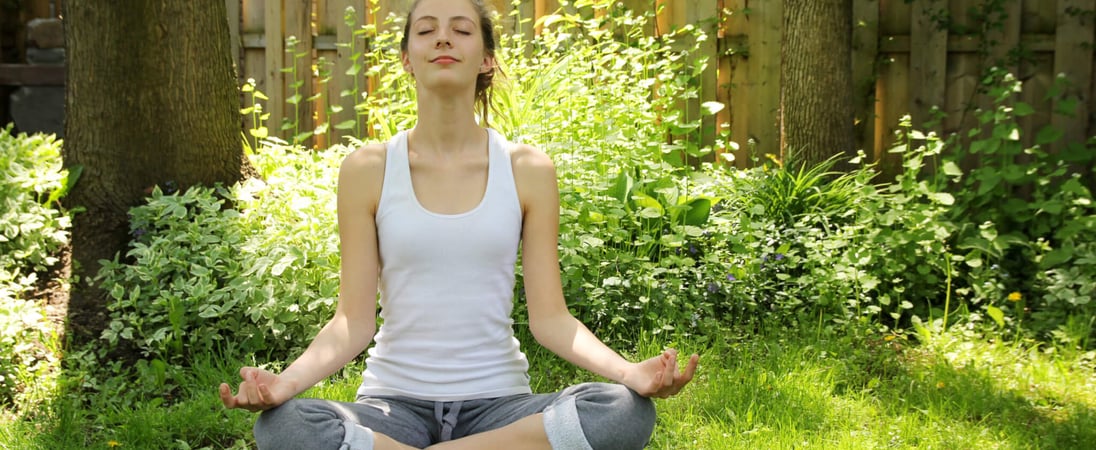
National Garden Meditation Day
Meditation and nature can both boost your mood, improve your focus and memory, and calm your emotions, so join them together by practicing meditation in a garden.
Is there anything more relaxing than a well-appointed garden?
The quiet trickle of a water feature, the buzz of insects pollinating your flowers, the chirping of birds in the trees, there’s little that feels so much like a slice of paradise. So what better place to settle in and relax and spend some time meditating on things in your life?
Being so close to thriving life and nature, gardens make a perfect place to seek an inner spiritual and connection with the world around us.
National Garden Meditation Day encourages us to take time to truly enjoy our gardens (or those of others) with a little soul-searching and peaceful meditation.
How to Celebrate National Garden Meditation Day
Celebrating National Garden Meditation Day may be one of the most relaxing and fulfilling practices of your entire year.
Meditate in the Garden
Meditation has a long history as a way to calm our minds and spirits, and meditation in a garden really connects you with nature and mankind simultaneously. Consider going into the garden for a private moment of self-introspection.
Join a Public Garden Meditation
This might be a time to join others in organized public garden meditations all over the world. Wanting to spread the love of gardening and maybe show off your garden a little?
You can organize a meditation in your very own garden and invite friends and family to come join you for a day of relaxation and soul-searching.
History of National Garden Meditation Day
National Garden Meditation Day was developed by C.L. Fornari, otherwise known as the Garden Lady. It was first celebrated around the year 2000 and has grown in size and scope ever since.
She has had a lifelong dedication to the wonders of the plant world and the wonderful places we can make in our home with gardens.
She believes that gardens can help connect us to ourselves, the natural world, and each other in deep and moving ways. So it was that she decided to set up an entire month of holidays celebrating her passion, gardens!
Gardens have a long history, being found in every country and time period around the world. Throughout this time they’ve served many purposes, from simple backyard gardens that serve as combination retreats and small food gardens, to expansive complex gardens set to exacting designs known as ‘formal gardens’.
These latter were preferred by the rich and important as lavish displays of their power, and likely as retreats from the difficult and harrowing life that came with being part of the aristocracy.
National Garden Meditation Day encourages us to get out and enjoy these little sacred spaces by spending some time with the sacred within us through meditation.
National Garden Meditation Day FAQs
Did ancient cultures practice garden meditation?
Yes, ancient cultures valued gardens as meditation spaces. In 2500 BCE, early Chinese gardens in the Huangshan Mountains served as places for reflection.
Similarly, Japanese Zen gardens, influenced by Zen Buddhism during the Heian period (600-900 CE), provided serene environments for meditation.
How do Japanese Zen gardens enhance meditation?
Japanese Zen gardens use rocks, raked gravel or sand, and carefully placed plants to create a tranquil atmosphere.
These elements encourage contemplation and mindfulness, aiding meditation by focusing the mind on simplicity and natural beauty.
What role did Mughal gardens play in meditation?
In the 16th century, Mughal gardens in the Indian subcontinent were designed for relaxation and contemplation.
Featuring fountains, water channels, and colorful flowers, they provided soothing environments conducive to meditation.
How did Victorian-era gardens influence meditation practices?
During the 19th century, Victorians embraced outdoor spaces for mental well-being.
The rise of public parks and gardens offered urban dwellers escapes from city life, allowing for moments of tranquility and mindfulness.
What are some modern interpretations of garden meditation spaces?
Modern garden meditation spaces often incorporate elements of natural beauty, sustainable practices, and thoughtful design.
Influenced by movements like Japanese minimalism, these gardens prioritize creating peaceful havens for serenity and self-reflection.
How can I create a meditation space in my garden?
To create a meditation space, choose a quiet, private area in your garden.
Incorporate elements like water features, minimalistic plantings, and comfortable seating to foster a serene atmosphere conducive to meditation.
What are the health benefits of garden meditation?
Garden meditation can reduce stress, improve mood, and enhance overall health.
Spending time in nature and practicing mindfulness have been shown to lower levels of the stress hormone cortisol and increase positivity.
Are there specific plants that enhance a meditation garden?
Yes, certain plants can enhance a meditation garden. Lavender, for example, is known for its calming scent, which can reduce anxiety and stress levels, making it a great addition to a meditation space.
How does garden meditation differ across cultures?
Garden meditation varies across cultures.
In Japan, Zen gardens emphasize simplicity and tranquility, while Mughal gardens in India feature elaborate designs with water features and vibrant flowers, each reflecting cultural values and aesthetics.
Can children participate in garden meditation activities?
Yes, children can engage in garden meditation. Activities like creating a fairy garden, painting flowers, or simple guided meditation can introduce them to mindfulness in a fun and interactive way.
See what else is happening…
There’s always more going on every month at Days Of The Year. Here are our favorites this month!
Also on ...
View all holidaysFree Comic Book Day
Dive into a new world, or revisit an old favorite by supporting your local comic book store and the people who create such magnificent worlds and characters.
National Paranormal Day
Put on your favorite paranormal flick or show, listen to a paranormal podcast, or read stories of real-life paranormal activity—but maybe leave the lights on.




